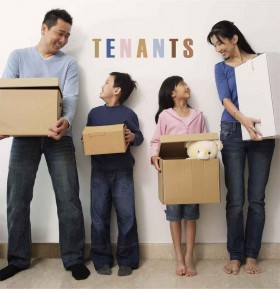Yesterday we’ve covered the top 5 tips to be a good landlord, so today we’re following up with some basic, but very important tips, to be a good tenant. You may think, “I’m already the perfect tenant!”, but sometimes what we think is right or acceptable may not be the case for your landlord. As every seasoned landlord and renter knows, there’s more to being a tenant than just paying your monthly rent, so read on and find out how you can make your (and your landlord’s) life easier by being a good tenant.
#1 – Read and Understand Your Lease
“I have read and agree to the terms and conditions.” Although we may check the box blindly when signing up for social media websites, when it comes to your rental contract, make sure you read through the document thoroughly and understand the terms of your lease. Ask your landlord if you are unsure about anything, and make sure that verbal agreements are laid out in black and white before you sign the lease. The lease is a binding legal contract, and can be used for or against you if a dispute arises between you and the landlord.
#2 – Pay Your Rent On Time
This, of course, goes without saying. Paying your rent on time each month will not only put you in your landlord’s good books (like getting a good referral when you move out), you can also avoid paying late penalties imposed by most landlords. Even if the landlord does not have a ‘late fee’ policy, paying your rent on time will make it easier to negotiate with your landlord in the event that unexpected circumstances cause you to not be able to make payment promptly.
#3 – Treat The Property Like Your Own
As the saying goes, ‘Do unto others as you would have done to you‘. In this context, it means that you should treat the property like you would your own, by keeping it clean and tidy, and maintaining it in good condition. Just because you rent the place doesn’t mean you should disregard any care for it; you do live in it, after all. Major repairs such as plumbing or electrical wires should be reported to your landlord, but small DIY fixes such as changing light bulbs and batteries can be done by yourself.
#4 – Don’t Break The Lease, and Get Permission For Changes
By breaking the lease, most people will immediately think of major transgressions like failing to pay rent, subletting the property, terminating the rental contract early, or destroying the property. However, don’t forget that small lease points count too, so if you’re contemplating painting the walls, drilling holes for a built in cupboard, or even getting a furry friend, make sure you get (written) permission from the landlord before going ahead with it. Keep all leasing documents properly as you never know when you might need them.
#5 – Be Nice To Your Neighbours and Landlord
Cultivating a good relationship with your neighbours will not only earn you brownie points (or even real brownies!) with them, you will also benefit from having people to keep an eye out on your place and helping to sign for your packages when you are away. If you encounter any problems with them, such as noise or cleanliness issues, they will also be more likely to solve it with you first instead of bringing up the issue with your landlord directly.
Likewise, maintaining a good relationship with your landlord is equally, if not more, important. Be respectful and polite to your landlord; most times, you will find that discussing and solving rental issues will go much more smoothly and quickly. Some landlords are even known to reward good tenants with improved maintenance and gifts on special occasions. More importantly, if your landlord has a positive impression of you during your tenancy, it will make searching for new rental places easier, as they can provide you a good referral.





